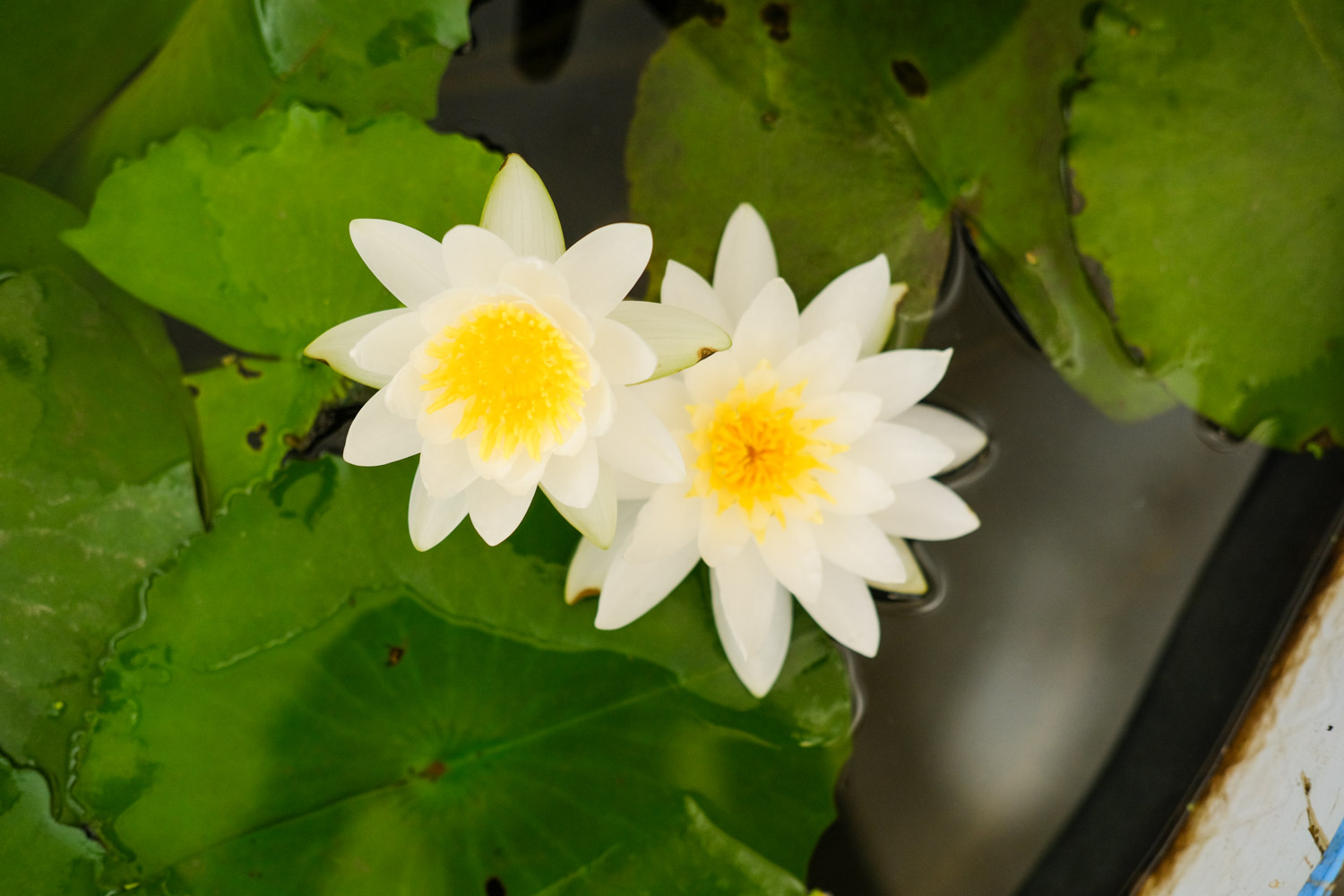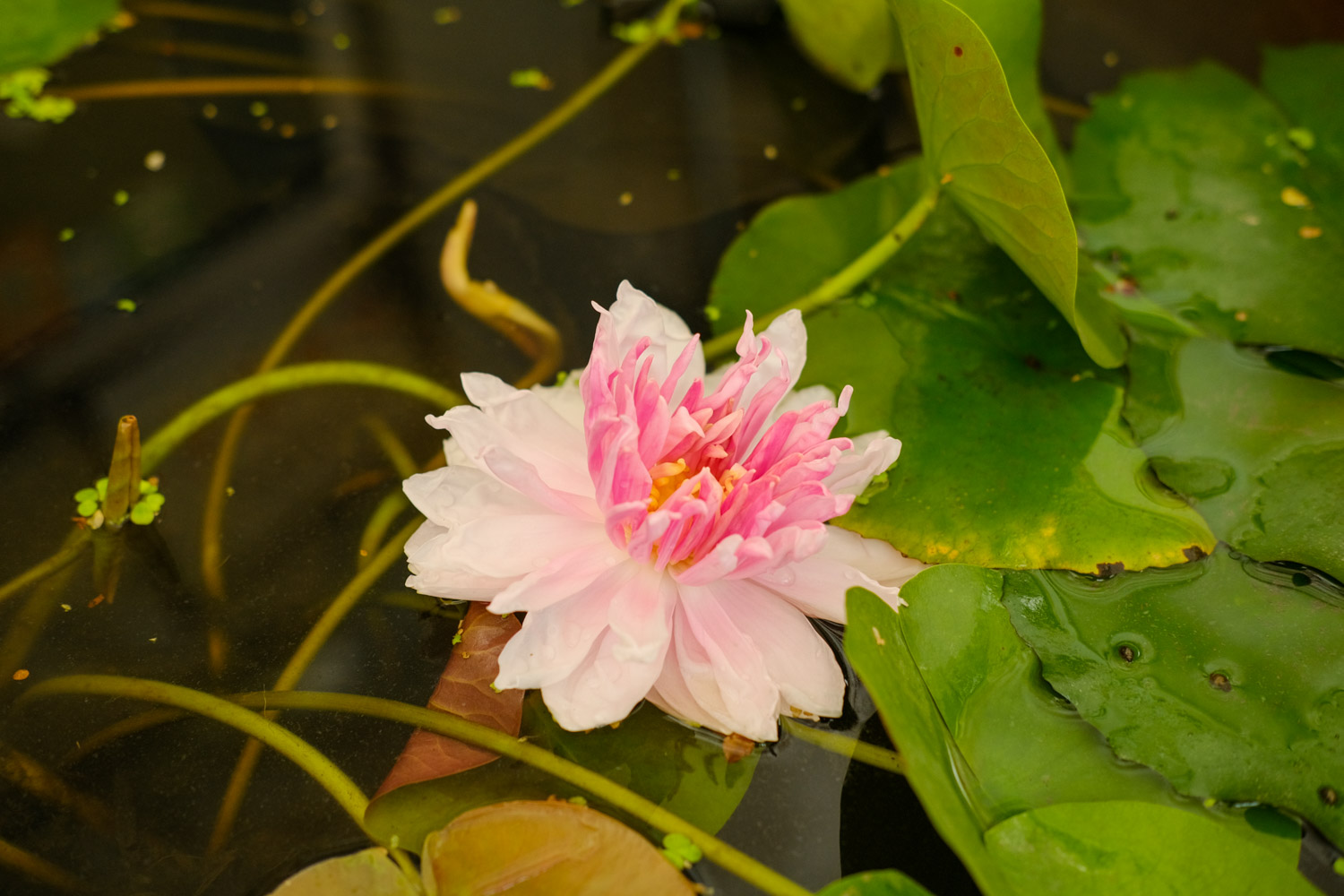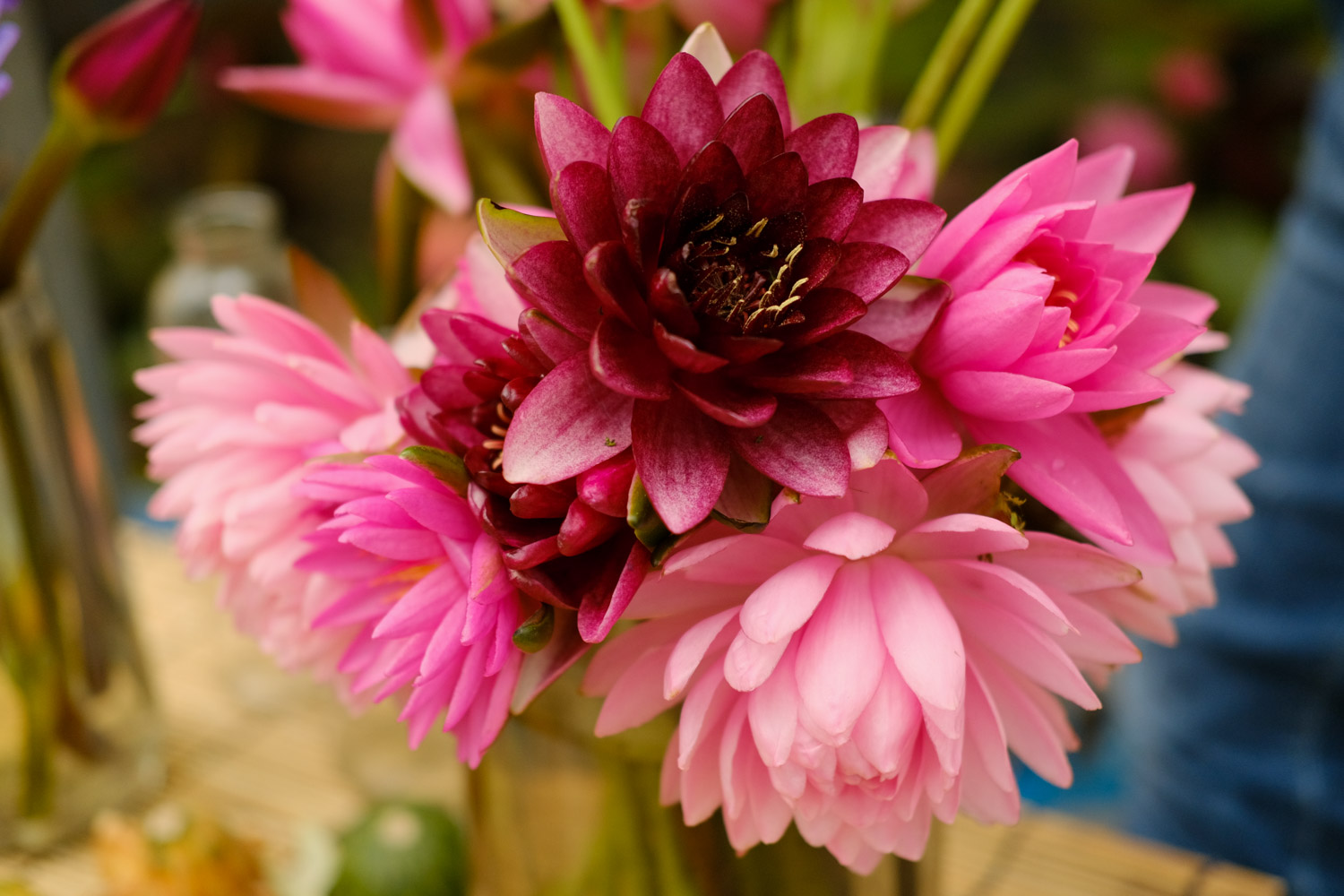1、 Planting method
1. When planting water lilies, the soil should be fertile. They can be planted directly from the pond bottom mud and sludge of natural water bodies, or from the soil of rice fields. If there is no such soil, use ordinary garden soil and base fertilizer
2. The root tubers of water lilies should be planted in the soil, and the top buds of the root tubers should be slightly exposed to the soil. After planting, add water, and the water should not be added too much, so that the surface soil can appear water stains. At this time, the soil becomes sticky and can be in close contact with the root system. After the root grows new roots, the soil becomes very sticky. After adding water, the soil is not easy to float and muddy
3. As its leaves grow, keep raising the water level until the leaves can float on the water. Generally speaking, for ordinary water lilies, the height from the soil surface to the water surface is about 40-50cm, which is ideal

2、 Curing conditions
1. Light: in the maintenance, it must be in the full light environment, and the shade environment will reduce flowering
2. Fertilization: if you want to fertilize, you must apply the fertilizer to the mud. You can't sprinkle the fertilizer into the water, because too much fertilizer in the water will grow too much moss

3、 Diseases and insect pests
1. Insect pests: there will be a small number of aphids and leaf eating pests during maintenance. After finding them, wash them with water in time or catch them manually
2. In the maintenance of water lilies, there are sometimes more mosquito larvae and larvae in summer. We can raise two small fish in the water, such as mosquito eating fish, so that it can eat the larvae and larvae clean


 how many times do yo...
how many times do yo... how many planted tre...
how many planted tre... how many pine trees ...
how many pine trees ... how many pecan trees...
how many pecan trees... how many plants comp...
how many plants comp... how many plants can ...
how many plants can ... how many plants and ...
how many plants and ... how many pepper plan...
how many pepper plan...


























